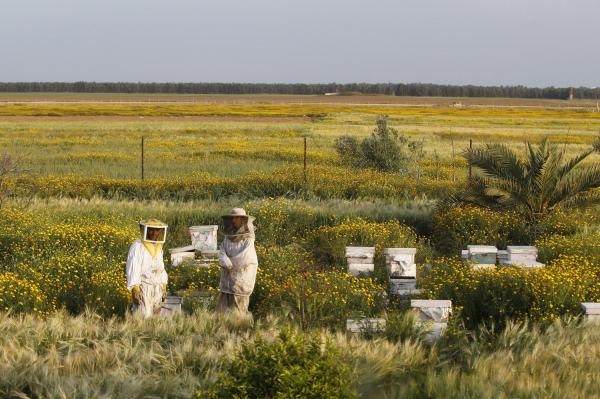-
Tips for becoming a good boxer - November 6, 2020
-
7 expert tips for making your hens night a memorable one - November 6, 2020
-
5 reasons to host your Christmas party on a cruise boat - November 6, 2020
-
What to do when you’re charged with a crime - November 6, 2020
-
Should you get one or multiple dogs? Here’s all you need to know - November 3, 2020
-
A Guide: How to Build Your Very Own Magic Mirror - February 14, 2019
-
Our Top Inspirational Baseball Stars - November 24, 2018
-
Five Tech Tools That Will Help You Turn Your Blog into a Business - November 24, 2018
-
How to Indulge on Vacation without Expanding Your Waist - November 9, 2018
-
5 Strategies for Businesses to Appeal to Today’s Increasingly Mobile-Crazed Customers - November 9, 2018
Insects as effective as bees for pollination
Bees have been receiving attention from conservationists and environmentalists in recent years for their dwindling populations worldwide and their key role in pollinating the world’s food supplies. It turns out that bees share the burden of pollination with a lot of other insects, causing scientists to call their help “under appreciated by farmers”.
Advertisement
In analyzing the field data, researchers found non-bee pollinators were responsible for between 25 and 50 percent of flower visits.
Scientists from New Zealand’s Plant and Food Research assisted researchers from 18 countries in analysing honey bee, other bee and non-bee insect visits to 480 fields of 17 different crop types on five continents. The synthesized studies comprised 1,739 field plant crops studies spanning five continents.
University of Queensland plant ecologist Dr Margie Mayfield said many crops – including mangoes, custard apples, kiwi fruit, coffee and canola – depended on non-bee insect pollinators such as flies, butterflies, moths, beetles, wasps, ants and thrips.
“Fruit set in crops increased with non-bee insect visits, independently of bee visitation rates, indicating that non-bee insects provide a unique benefit not provided by bees”.
According to Mayfield and her team, the fact that the global bee populations are now experiencing tough times should raise the stakes for protecting other pollinators, the insects that could keep the ball rolling. While these insects might not be as effective at pollination as the bees, they provided slightly more visits, which compensated for the efficiency.
According to co-author of the study, Saul Cunningham from the CSIRO (Commonwealth Scientific and Industrial Research Organisation), this new study is crucial in filling the gap that created a bias in research about studying bees.
Advertisement
Mayfield explained how risky it is that the global burden of pollination relies on the tiny and exhausted shoulders of the honeybees; the threats to the health of honeybees populations are increasing, mostly due to diseases and pests, but also because of colony collapse disorder. There are so many other insects that can also have a greater impact on the crop pollination process and this is evident in crops that do not attract bees as much.




























